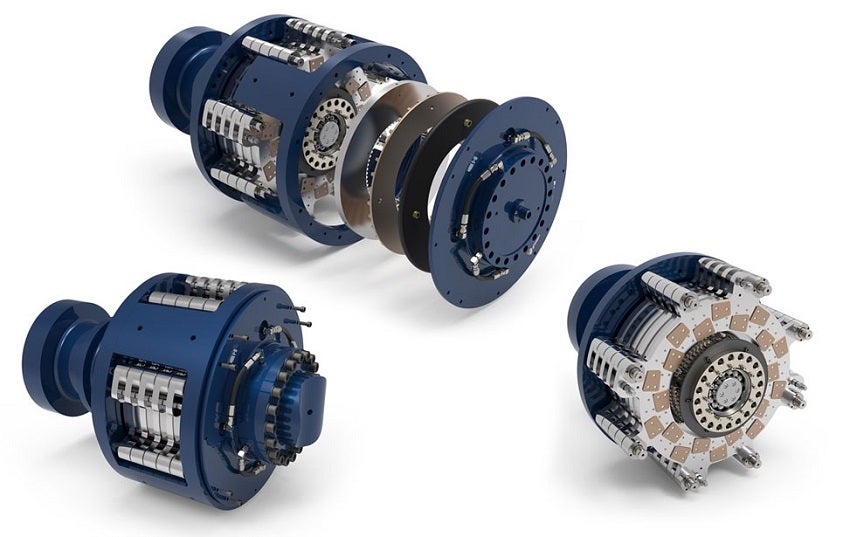
Few applications offer the challenges that are faced by the pump drivetrain on a dredging vessel. Massive power requirements, huge inertial loads and the ever-present risk of a blockage; all of these factors have to be managed by the clutch assembly, which has recently had a technological boost, thanks to Wichita Clutch.
Performance and reliability are essential to dredging operations. Downtime for repairs can be extremely costly in terms of lost output from the vessel, which means a new development capable of improving these characteristics is worth investigating.
Power management
Modern-day marine propulsion systems typically employ the use of hydraulically operated and oil cooled ‘wet’ clutches located in the gearbox for applications that require the drive to be disconnected from the engine, or during forward and reversing manoeuvres. However, dredging operations present a unique set of challenges, which are best handled by pneumatically operated ‘dry friction’ clutches that can provide protection against torque overloads.
The diesel/mechanical drive systems employed in many dredging applications often power both the propulsion system and the dredging pump via their respective gearboxes. The scale of the pumps means that the impellers have a huge inertia; added to this is often a two or three speed gearbox which adds further to the inertia at start-up. Therefore, any clutch connecting the pump to the engine must be engineered to withstand the rigours of the application.
The pumps are central to the performance of the dredger, so long-term operational costs – including maintenance time – are very important to dredging operations since downtime has significant costs associated with it. Therefore, extending maintenance intervals and investing in more durable and reliable power transmission solutions can make a substantial reduction in these costs.
Design expertise
Wichita Clutch, a brand of Altra Industrial Motion Corp., has developed a sinter metallic friction clutch that significantly outperforms the more traditional organic friction versions that are used in many such applications. The new clutch plate material can withstand much higher interface temperatures without breaking down. It can also handle higher peak powers and energy inputs while significantly reducing the wear rates seen in organic plates.
These features are very important when it comes to the control of torque and power transfer within the pump drive; the versatility of the pneumatic clutch is used to provide the optimum start-up profile of the dredge pump to ensure that the diesel engine speed and power delivery remains within the optimum operational envelope. Having a clutch that can be fine-tuned to provide torque control and handle extended slipping times during start-up is key to realising this goal.
Once the pump is up to speed and under load, the clutch, together with the integrated control system, act as a torque limiting device to protect the pump and gearbox from excessive loads resulting from a partial or complete pump blockage. Effectively, the clutch can be set up to slip at a pre-determined overload limit in the event of excessive torque demand from the engine. The controls then disconnect the clutch rapidly to protect all drivetrain components including the clutch.
Due to the unique design of each vessel, Wichita tailors each solution to a particular application. This includes sizing the clutch itself and adapting the bearing housing design to suit the preferred flexible coupling, which is required to accommodate equipment dynamic misalignment and torsional vibration damping.
Wichita also designs and builds the clutch engagement control panel, which is responsible for ensuring a smooth start-up, minimising wear and ensuring that the drive is disengaged in the event of a pump blockage or overload. As such, the company can offer a turnkey solution for the design, build and installation of a new clutch system, as well as offering comprehensive maintenance and commissioning support if required.

